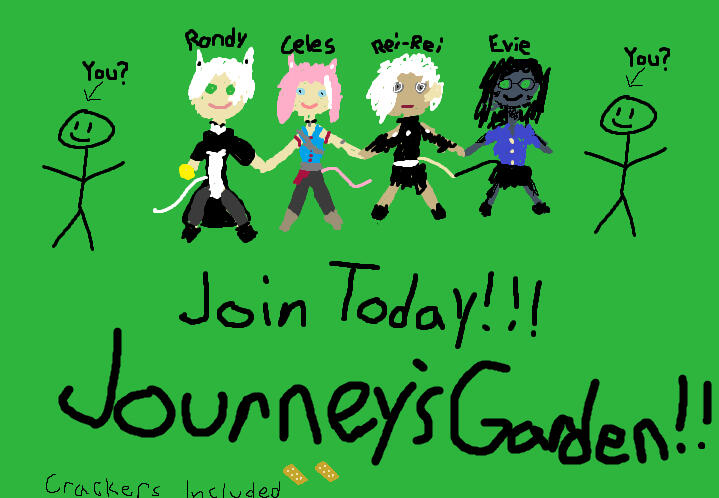Journey's Garden
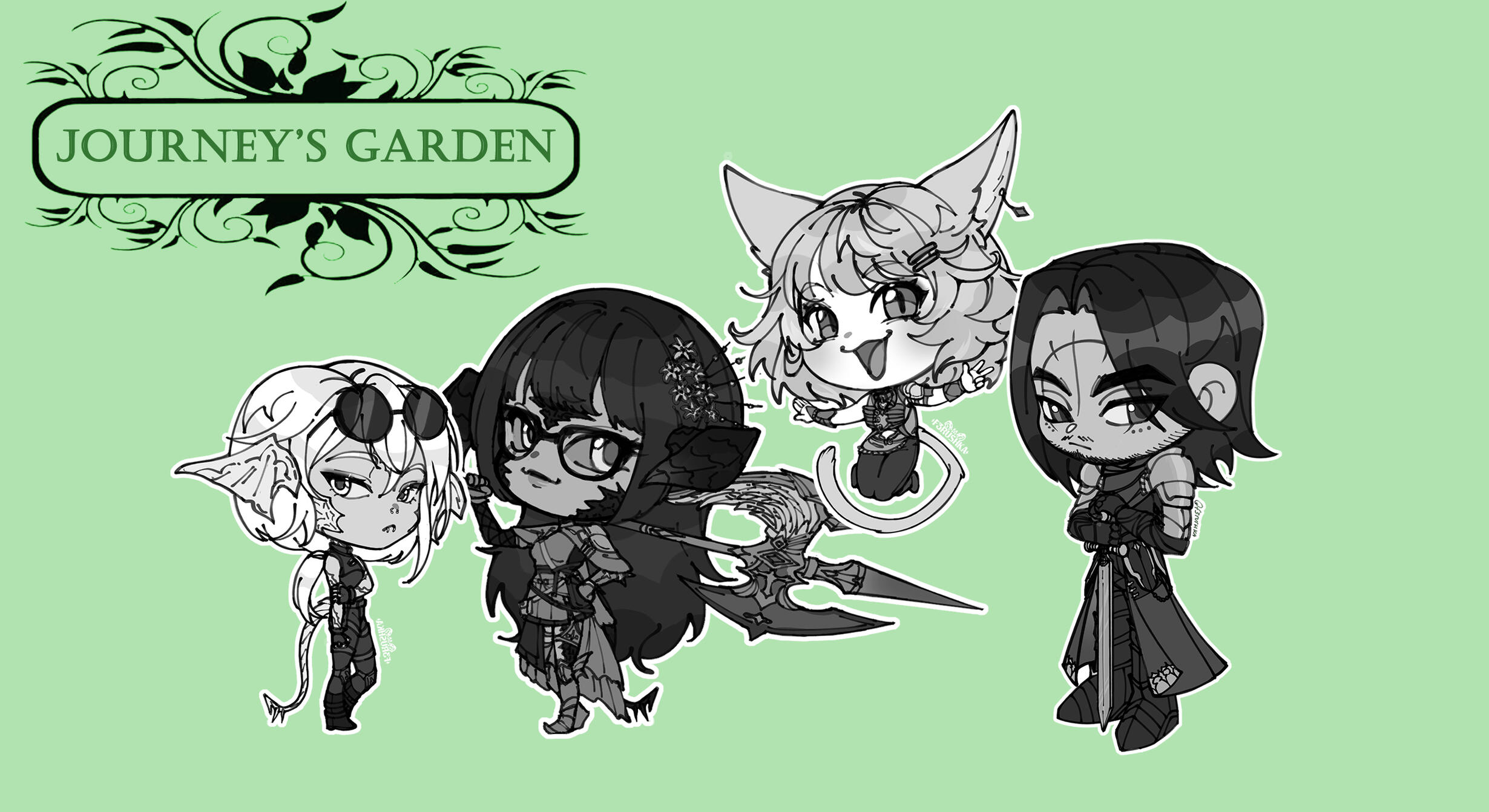
Chibi art of the officers drawn by the wonderful Ferushka!
Welcome to Journey's Garden!We're a free company dedicated to helping people and fostering an environment where anyone can be a hero. Our friendly, supportive staff will help guide adventurers - new and old alike - toward personal growth.So take a load off, grab some crackers, and stay a while.
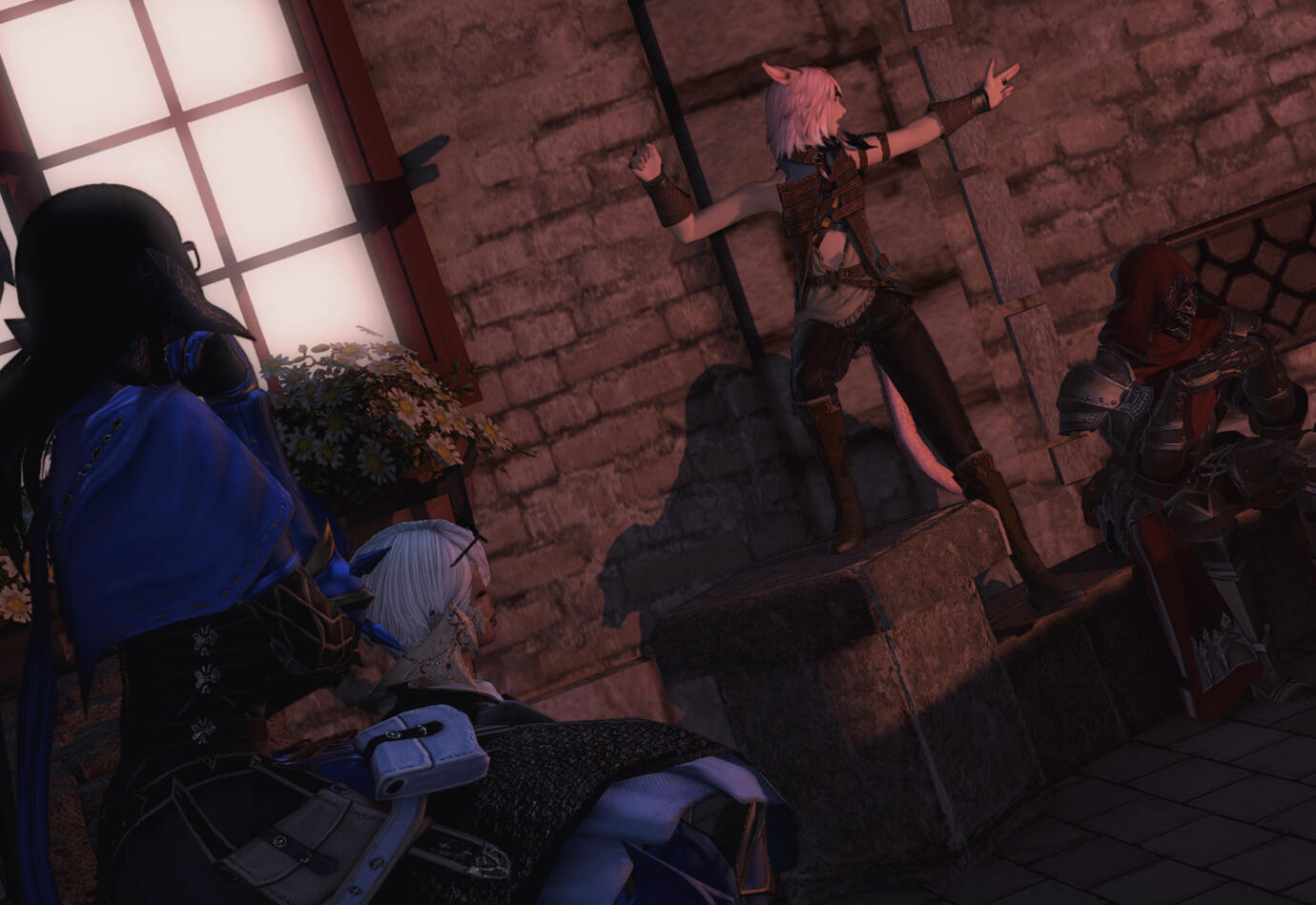
Celes regales the Garden with one of her stories.
Our band of misfit friends are working together for a better Etheirys. We run all sorts of events as often as we can. These events range the whole gamut from social get-togethers, hunting notorious monsters, investigations out in the world, and even holiday parties. Last Halloween, a tonberry tried to kill us all with a spoon!
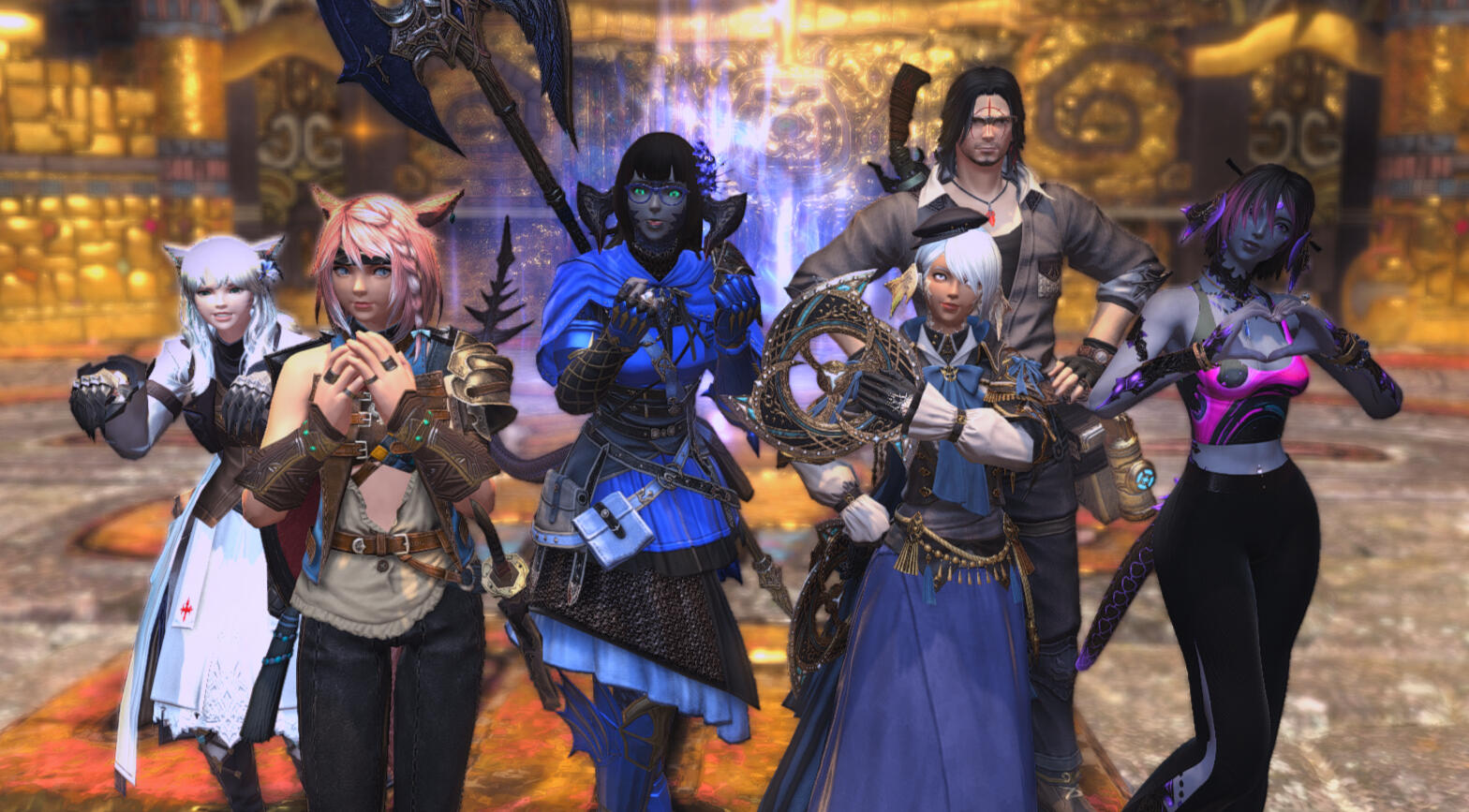
Journey's Garden successfully spelunks for treasure!
Our missions have lasting impact. How you carry yourself around foreign powers will matter when you go back. People you meet, monsters you kill, and events you encounter can always come back again in the future! Keeping notes is highly encouraged. The better you remember what happened last time, the more effective you'll be on your next outing!K'muah is a great example. We rescued her from an abusive family on one of our earliest adventures together, and now she's become a permanent fixture in our family.
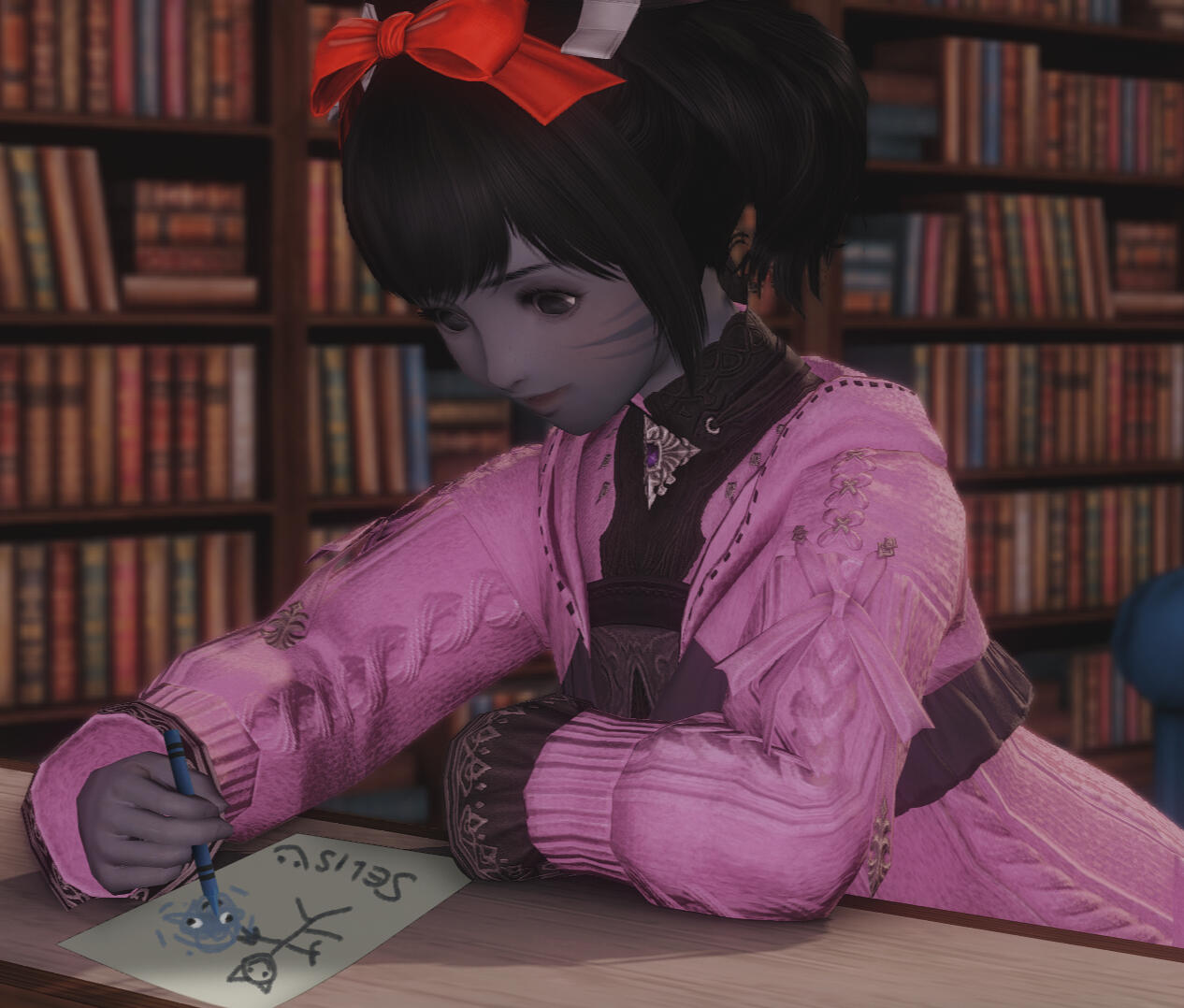
K'muah draws a picture of herself and her best friend - Selis the water elemental
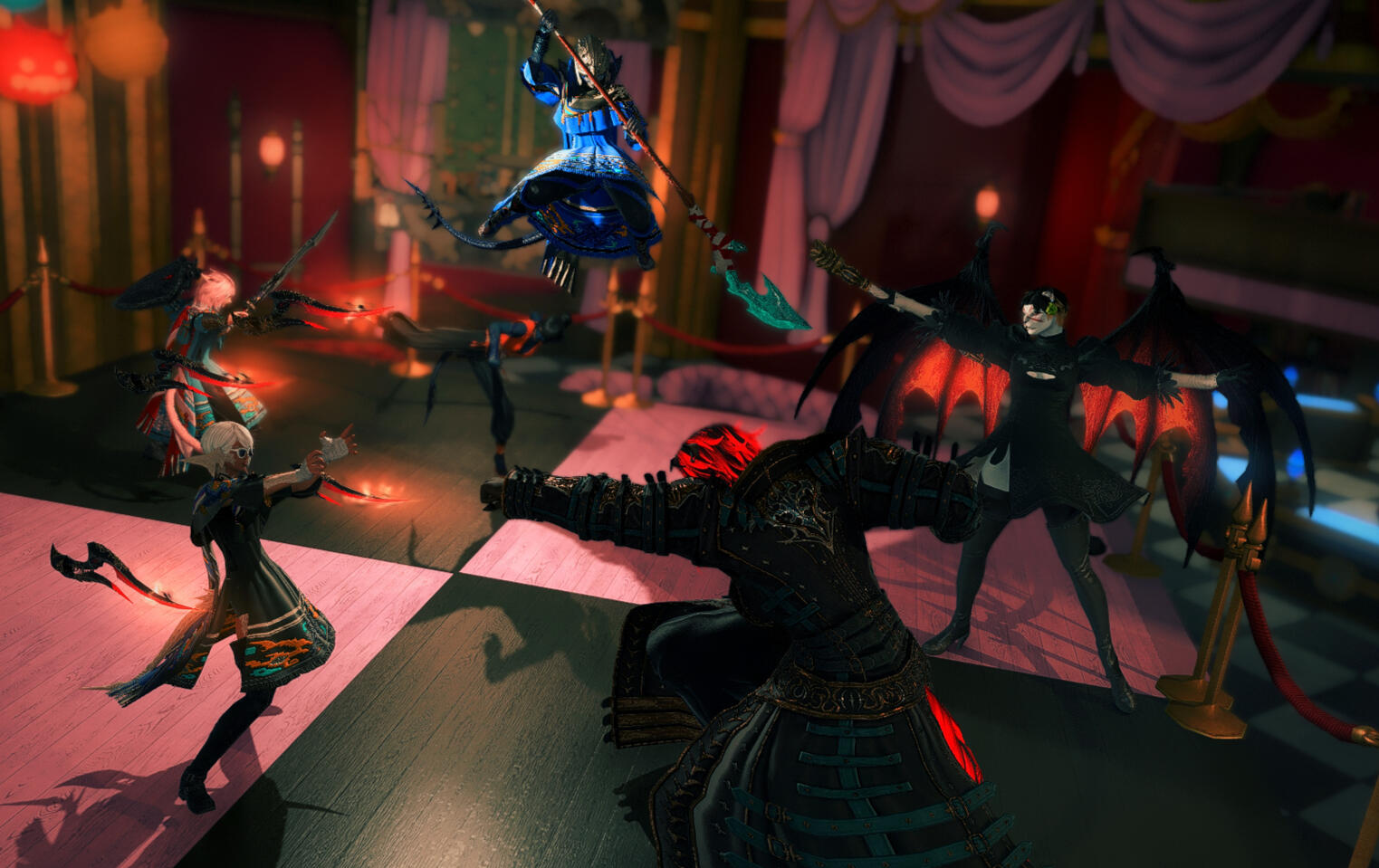
The Cracker Companions - Celes, Eve, and Reika - compete in the Harlequin's team-up event.
The President
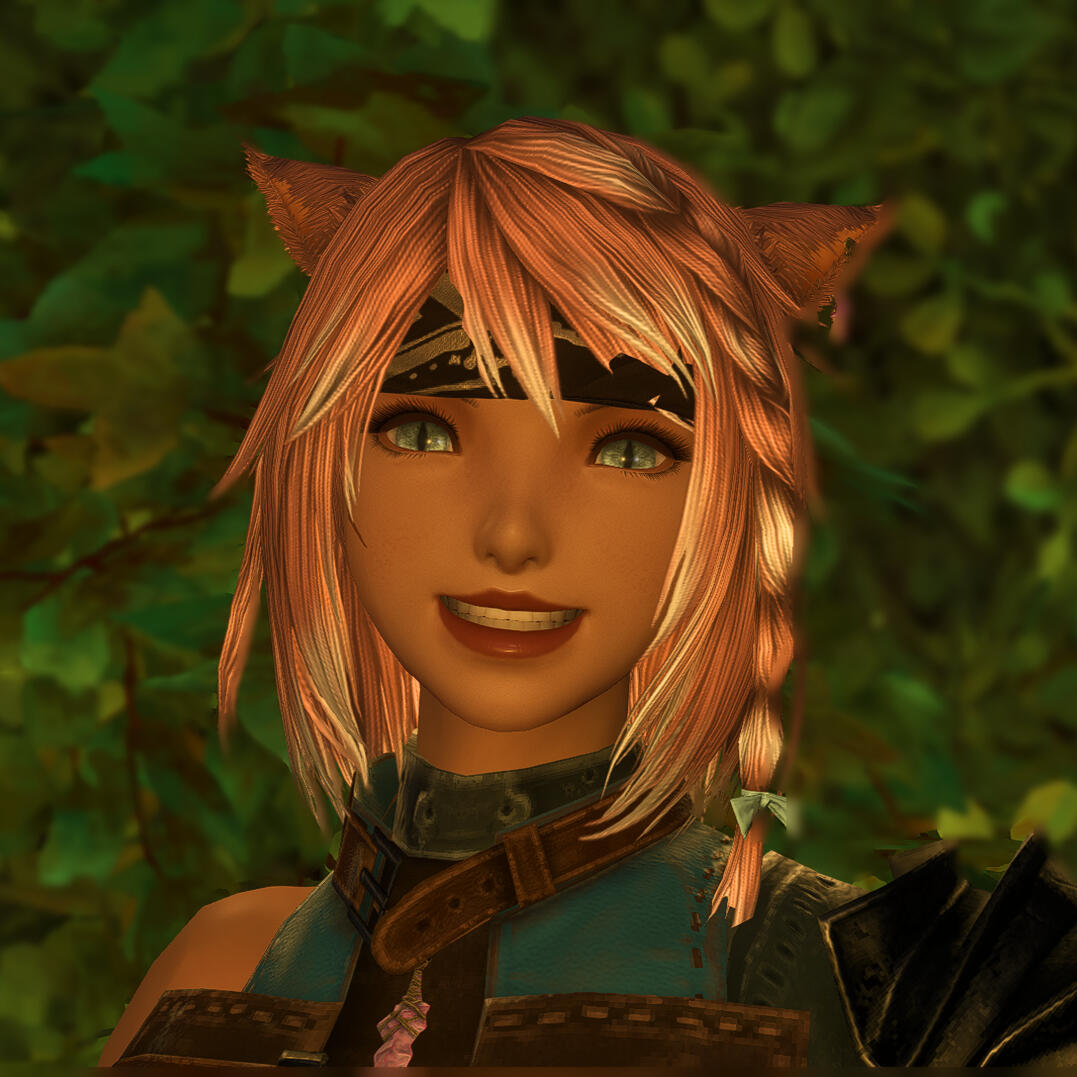
Celes Brightblade
Likes: Crackers, Chocobos, Camping.
Dislikes: Puns, anything that covers her fingers
Fighting Style: Sword & Shield - Bow
Celes is many things. "Former" Gleaner, wanna-be knight, cracker enthusiast. Most importantly above those: President of Journey's Garden.
She is somewhat delusional, but well meaning. Ask her about any topic, and she is sure to have a correct answer. She's passionate about cooking and mentoring those who may be starting their journey for the first time.
Officers
Eve Malqir
Likes: Reika, spears, kharaqiq.
Dislikes: Bland food.
Fighting Style: High-flying lance shenanigans.
Forged in the fires of the war-torn east, Eve is a hardened warrior. She has recently started building a life with her wife, Reika, while devoting herself to a good cause - Journey's Garden. She is headstrong, quick-witted, and always up for a friendly spar. She acts as the lead combat trainer for the Garden.
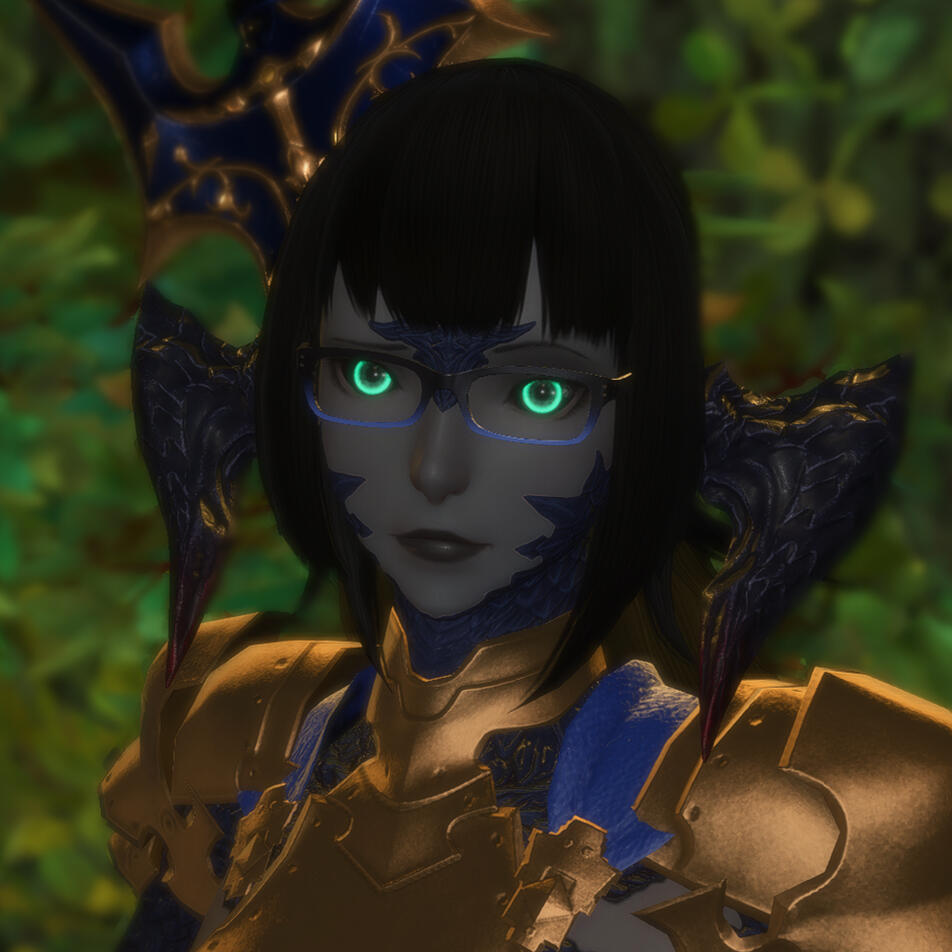

Reika Malqir
Likes: Rain, camping, pie, facts.
Dislikes: Dolls, puns, being touched.
Fighting Style: Aether Manipulation - Aetherology.
Reika acts as the administrator and bookkeeper for the Garden. She oversees the medical needs of the company, and acts as the primary doctor on-site. She is passionate about collecting new pets, but will swear up and down that this is NOT her passion. She has also just recently submitted her thesis to become an Archon.
Bruce Helix
Likes: Sketching, camping, cooking.
Dislikes: Unnecessary combat, the Amalj'aa.
Fighting Style: Adaptive swordplay and pyromancy.
Bruce acts as the co-lead of combat training, ensuring those who are only starting out through Journey's Garden are well-prepared for what they may encounter in the field. He was originally brought on by Celes as a lifelong rival (a title Celes forced upon him) only to later become a steadfast ally. Though he tends to dwell and keep his past close to his chest, he may share drawings and descriptions of past adventures with those willing to lend him their time — but the truth of his mysterious nature will likely never be fully told.
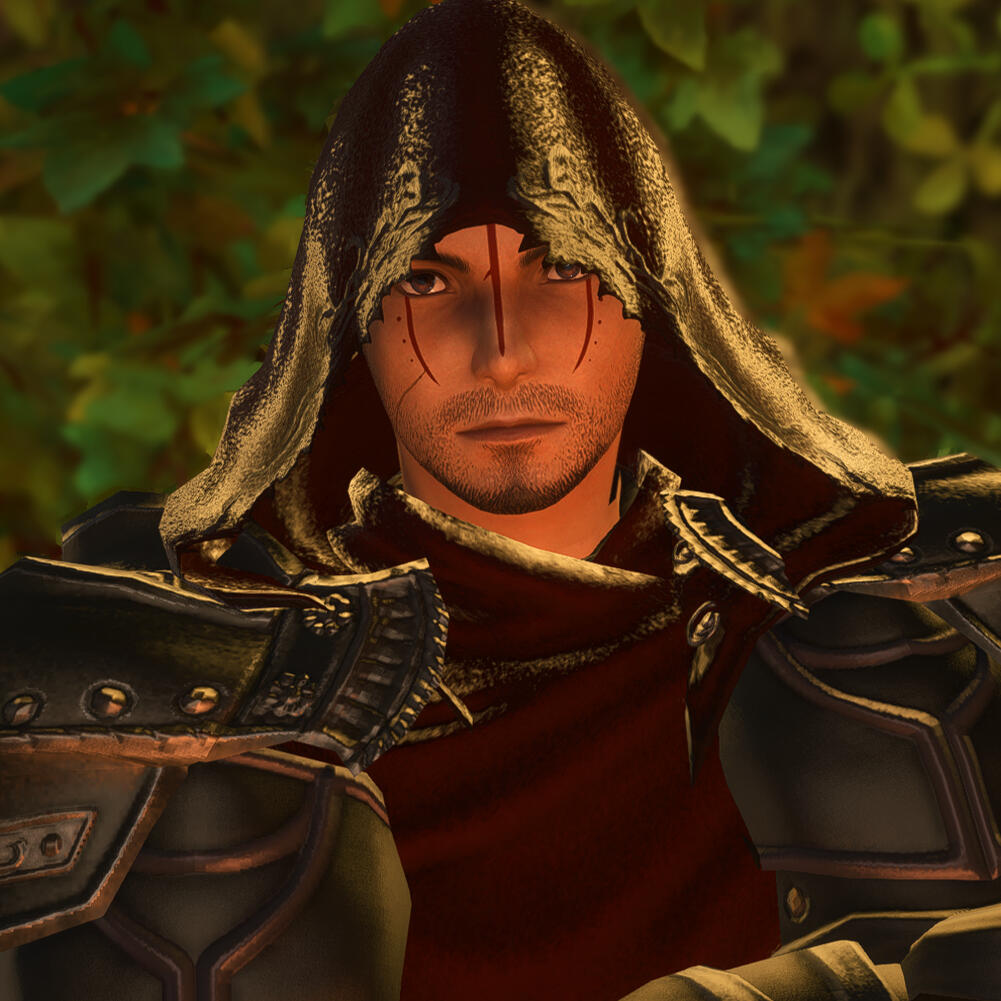
Mentors
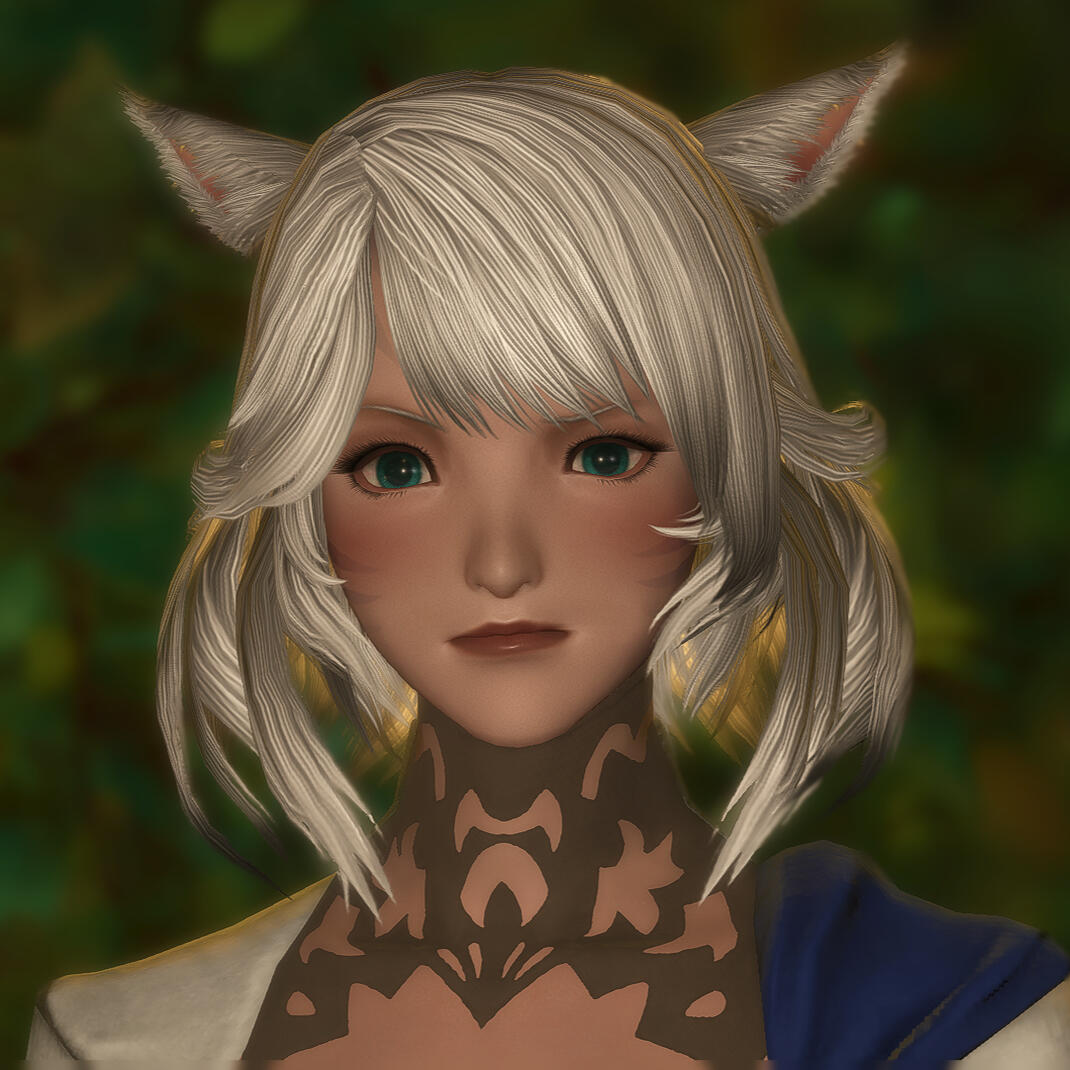
Rondait Snow
Likes: Maps, reading, reading maps.
Dislikes: Getting hissy, pirates.
Fighting Style: Pictomancy with her specially-modified pen.
Rondait serves as a cartographer and intelligence specialist for Journey's Garden, and helps out in her sister's infirmary when not tending to the company's duties. She absolutely adores mapmaking, her girlfriend, her sister, and her friends. When she wants to relax, she'll often be found daydreaming as she watches Azalea work on her machines, or curling up with a nice book about the geopolitical intricacies of the city-states.
Mysteria Valentine
Likes: Orphy, the beach, adventure.
Dislikes: Edgelords.
Fighting Style: Aether-charged unarmed combat
A Steppe native, Mysti left as a teenager to find adventures in the outside world. Now a war veteran, she's honed her combat against beasts, Garleans, Tempered, Blasphemies, and all manner of villain over the years. She is now the owner of a detective agency contracting with Journey's Garden and lending her years of combat expertise to their missions.

Officers can be found via the discord link below! Message any of us or the President if you have any questions or suggestions! We're looking forward to meeting you!
Join us!
Gardenia
Introduction
Introduction
- Basics
- Judgment Calls and Dice
- Attributes and Actions
- Types of Rolls
- Equipment and Abilities
- Turn Sequence
- XP and Progression
The Gardenia System
The Gardenia system is modified from the Blades in the Dark tabletop game. We use it to run our GMed events in FFXIV. We made our version based off of the Redblades system used by Chikage, twisting it from evil alignment to good alignment, to better suit our purposes and ethos.
This system encourages creative thinking and relies on six-sided die rolls to determine the degree of success of roleplay actions. Some back and forth between the GM and player is highly encouraged when deciding which actions to use.
To participate in our GMed events - investigations, hunts, explorations, etc. - you may be required to have a character sheet set up ahead of time. Setting up a sheet is quick and easy - it's covered in a later section of this little guide. Events will be labeled with star ratings for difficulty - it is advised to take on the lower rated events first, if you're new to the system!
The Spreadsheet
To access the spreadsheet that we use for character sheets and other rules, click the Journey's Garden logo in the menu bar. The one at the tippy-top takes you home. Not that one.
Gardenia
Basics
Basics
- Judgment Calls and Dice
- Attributes and Actions
- Types of Rolls
- Equipment and Abilities
- Turn Sequence
- XP and Progression
Players
You, the player, should already have an established FFXIV roleplay character. That will be your character for these events. Do keep in mind that, while injuries of a serious - and life-threatening - nature may occur, nothing of that sort can happen without the player's explicit consent.
The players and GM work together to establish the tone of the game by making judgment calls about the mechanics, dice, and consequences of actions. Both players and GM work together to tell the story.
The Game Master
The Game Master (GM) establishes the world in which the story is written. The GM plays all of the non-player characters in the world, giving each one a concrete desire and preferred method of action.
The GM helps organize the conversation of the game so it stays focused toward the interesting elements. The GM isn't in charge of the story and doesn't have to plan events ahead of time. They present interesting opportunities, scenarios, and such to the players, then follow the ensuing chain of action and consequences.
Communication in Game
During any event, communication happens in two channels - one for roleplay and one for out-of-character conversations and dice rolls. The former will generally be held in the "say" chat channel, while the latter will generally be in the "party" or "cross-world linkshell" channel, depending.
Time Investment
Events are generally designed to be quick, aiming for around the 3-4 hour mark. They may run long, and can always be split in half if people can't continue too long past the planned stopping point.
Gardenia
Judgment Calls and Dice
Judgment Calls and Dice
Judgment Calls
Everyone will be making judgment calls during the game. The players or the GM have final say at different times.
What actions are reasonable solutions to a problem? Can this person be swayed? Will our skill with the flow of aether be sensitive enough to diagnose an injury or should we rely instead on the medical tools on hand? The players have the final say.
How risky or effective is the given action in this situation? Can this person be swayed a little or completely? The GM has the final say.
What consequences happen in any given situation? Does this fall break your leg? Does the monster merely investigate your hiding spot or does it see you there? The GM has final say.
Rolling Dice and Resolving Actions
Players use six-sided dice for their actions. This is usually done with "/random 6" or "/dice 6" in party or cross-world linkshell chat. The player may be rolling multiple dice. In this case, they only read the highest result.
If you roll two or more 6's, it's a critical success. You succeed with additional effect and gain more advantages.
If the highest die is a 6, it's a full success.
If the highest die is 4-5, it's a success, but with consequences which can be some combination of additional trouble, being harmed, reduced effect, etc.
If the highest die is 3 or less, it's a failure. You fail to achieve what you wanted to do. Things go poorly and you suffer consequences.
When encountering a problem, players will decide which action rating to roll on to solve it. These are more easy to think of as your stats.
Gardenia
Attributes and Actions
Attributes and Actions
In this system, every character has three main attributes - Insight, Prowess, and Resolve. In order to overcome obstacles, the players will use actions (effectively "stats" in this system) which are categorized under these three attributes.
Insight
Hunt: You carefully track a target.
Study: You scrutinize details and interpret evidence.
Survey: You observe the situation and anticipate outcomes.
Tinker: You fiddle with devices and mechanisms.
Prowess
Finesse: You employ dexterous manipulation or subtle misdirection.
Prowl: You traverse skillfully and quietly.
Skirmish: You entangle a target in close combat so they can’t easily escape.
Wreck: You unleash savage force.
Resolve
Attune: You open your mind and body to arcane power.
Command: You compel swift obedience.
Consort: You socialize with friends and contacts.
Sway: You influence with guile, charm, or argument.
For more detailed explanations of each action, you can check the notes on each action rating in the spreadsheet.
Why so much overlap?
This is intentional. As a player, you get to choose which action you roll, by roleplaying what your character does. Can you try to Wreck someone during a fight? Sure! The GM tells you the position and effect level of your action in that situation. Skirmish might be better in the specific situation (less risky or more effective), but it also might not be. The better you are at explaining yourself, the more likely you are to succeed and the better your effects will be when you do.
Gardenia
Types of Rolls
Types of Rolls
Action Rating Level (How good your stats are)
Each action has a rating from zero to four that tells you how many dice to roll when you perform that action. Action ratings don’t just represent skill or training—you’re free to describe how your character performs that action based on the type of person they are.
Maybe your character is good at Command because they have a scary stillness to them, while another character barks orders and intimidates people with their military bearing.
You choose which action to perform to overcome an obstacle, by describing what your character does. Actions that are poorly suited to the situation may be less effective and may put the character in more danger, but they can still be attempted. Usually, when you perform an action, you’ll make an action roll to see how it turns out.
Action Roll & Position (When you make the move)
You make an action roll when your character does something potentially dangerous or troublesome. The possible results of the action roll depend on your character’s position, which is a way to describe how challenging the task is at that moment.
There are three positions: controlled, risky, and desperate. If you’re in a controlled position, the possible consequences for not rolling a 6 are less serious. Likewise, If you’re in a desperate position, the consequences can be severe.
Resistance Roll (Your defense against bad stuff)
We consider how spread out your action ratings are in each of the attributes when considering Resistance Rolls. Namely, Insight, Prowess, and Resolve. As an example, if you have points in both Finesse and Prowl, then you are better off than someone who only has a point in Skirmish in Prowess.
If you get stabbed, for example, you resist physical harm with your Prowess. Resistance rolls always succeed—you diminish or deflect the bad result—but the better your roll, the less limit it costs to reduce or avoid the danger.
Improving your Chances
When executing an action, there are many ways to improve your chances, listed below. Note that you may not push yourself and take a devil's bargain on the same action.
An ally can assist your action. That ally can improve either the chance of success with an additional die or the effect of the action.
Push yourself by taking 2 limit to gain an additional die.
Take a devil's bargain from the GM or an ally.
Use a Flashback.
Improve the situation with equipment or an ability.
Click this link for a brief video showcasing how rolls work.
Gardenia
Equipment and Abilities
Equipment and Abilities
Equipment
On any given adventure, you have access to a wide selection of gear and tools that can be used to meet the challenges and obstacles on the mission. There are many common tools shared amongst the various classes, but also a handful that are unique to each class.Unlike most games, you do not decide what equipment you bring before a job but instead check them off as you use them.
The only thing you decide before a job is your loadout. Whether or not you're approaching a job with a full sack worth of tools and armor or dressed light and in inconspicuous clothes.
Most pieces of gear tend to enable or improve actions, making its effect better. It is, after all, much easier to scale a cliff face with a set of climbing gear than without.
Unlike most games, you do not decide what you packed in your bag before leaving on the adventure, but instead check them off as you use them.
The only thing you decide before a job is your overall pack size. This loosely dictates the quantity of items you brought along.
Abilities
Abilities enable certain thematic actions and help to modify your outcome or chances against a situation. You will obtain abilities by earning experience points (XP) and filling your Ability track. Whenever you fill the track, you learn one new ability, choosing either from those your class naturally learns or adding a cross-class ability from one of the green-colored classes.
Gardenia
Turn Sequence
- Introduction
- Basics
- Judgment Calls and Dice
- Attributes and Actions
- Types of Rolls
- Equipment and Abilities
Turn Sequence
Planning and Engagement Phase
Prior to the start of an adventure (this can be done during downtime), the team should plan out an approach.
Players:
Provide the detail for how you plan to tackle your assignment.
Decide on your pack sizes.
Go through major advantages and disadvantages.
Game Master:
Does the engagement roll to determine the starting position of the mission.
1d for sheer luck.
+1d for every major advantage.
-1d for every major disadvantage.
Critical: Exceptional result, you’ve overcome the first obstacle and you are in a controlled position for what’s next.
6: You are in a controlled position when the action starts.
4/5: You are in a risky position when the action starts.
1-3: You are in a desperate position when the action starts.
Player Turn
| 【Ⅰ】 | Player informs the GM of their intentions. |
| 【Ⅱ】 | GM lets them know the possible outcome by informing them of their position and effect. |
| 【Ⅲ】 | Player decides if they want to augment their rolled dice by either: |
| ⮡ | pushing themself |
| ⮡ | taking a devil's bargain |
| ⮡ | having someone else assist the player |
| 【Ⅳ】 | Dice are rolled. |
| 【Ⅴ】 | Action is resolved. |
| 【Ⅵ】 | Player writes their roleplay post while the GM moves to the next player in line. |
Gardenia
XP and Progression
- Introduction
- Basics
- Judgment Calls and Dice
- Attributes and Actions
- Types of Rolls
- Equipment and Abilities
- Turn Sequence
XP and Progression
Earning Experience
In the Gardenia system, you can earn XP in a few ways.
Each time you roll a desperate action, you get 1 XP in that action's attribute.
You addressed a challenge in a manner befitting your chosen class.
You expressed your character's beliefs, heritage, drive or background.
You struggled with issues from your harms or breaks during the session.
Training during downtime.
Progression
As you earn XP, you mark it on your XP track. Unless otherwise specified, XP gained can be applied to any of your four tracks. When a track reaches maximum, you progress in the associated attribute or in your abilities.
When you progress in your abilities, you learn one new ability. This can either be one that your class has access to or it can be an ability from any of the green classes. If you already have the maximum amount of abilities you can learn, your XP track cannot be cleared and a new ability cannot be learned until/unless your maximum increases.
When you progress in one of your attributes, you upgrade one of the associated action ratings to the next rank or put your first point into an associated action rating in which you have 0. Action ratings cannot exceed 3 prior to earning the appropriate upgrade from the Journey's Garden list that unlocks the 4th pip. If you have the maximum number of action points already assigned to your action ratings, the XP track cannot be cleared and you may not improve your actions until/unless your maximum increases.
Gardenia
Downtime
- Introduction
- Basics
- Judgment Calls and Dice
- Attributes and Actions
- Types of Rolls
- Equipment and Abilities
- Turn Sequence
- XP and Progression
Downtime
After you return home from an adventure, you are considered to be on downtime until you next join a sanctioned adventure with the company. This period between missions in which you participate is referred to as one downtime window. During one such window, you can perform various activities to improve your character, mend your wounds, and prepare for your next mission.
Downtime activities are all also explained on the spreadsheet.
Passive Downtime
During any single downtime window, you may always do the following for free:
Heal. Tick your healing clock up by 2.
Work. Distribute 2 ticks over any long-term projects you have started.
Relax. Reduce your limit by 2. You also gain +1 additional reduction if you engage in any sort of social roleplay with other members or +2 if you attend and participate in a social event hosted by one of our members or hosting one yourself.
The Healing Clock is simply a ticker that, when full, you may empty in order to either reduce all harm by 1 tier or remove any 1 break.
Active Downtime
During any one window of downtime, you - by default - have 0 downtime actions to spend. When you sign up for an adventure, you gain +1 action. Once you are signed up, you may also spend favor to gain up to 2 more actions, at the cost of 1 favor for each one. There is a company upgrade to grant +2 rather than +1 actions when signing up for an adventure. The max of additional actions (2 more) still applies in this case.
When you spend an action on an activity, you gain its benefits. In addition, any activity may be roleplayed out when you spend your actions, increasing the benefits of that activity.
The available downtime activities are on the spreadsheet. Click the Journey's Garden symbol in the menu bar to access it!
Gardenia
Classes
- Introduction
- Basics
- Judgment Calls and Dice
- Attributes and Actions
- Types of Rolls
- Equipment and Abilities
- Turn Sequence
- XP and Progression
Classes
Classes
The classes in the Gardenia system are meant to compliment and accentuate your character's fighting style. They generally do not interfere with normal FFXIV job identity.
There are multiple class options within the Gardenia system, which can also be seen on the Home part of the spreadsheet.
Leader. a team player who takes charge of the situation.
Defender. a sturdy, defensive wall.
Fighter. a master of blades with a silver tongue.
Enforcer. a technical fighter of deft and peerless skill.
Hunter. a skilled tracker and talented sniper.
Caster. an arcane spellslinger of unique talent.
Mender. a fixer of wounds and healer of minds.
Advanced (Red) Classes are a bit more involved.
Ravager. an off-worlder who drinks aether to survive.
Clanker. a soul bound to a mechanical body.
The mechanics and abilities of these classes are more nuanced and difficult to understand and master. It is completely valid to be a voidsent and choose a green class, instead of being a ravager. It is recommended to only play these classes if you are comfortable with the system. You may start on a green class and change to the red later on when you better understand the system, if your character would apply to that class!
Regardless of the circumstance, if you would like to re-spec later on, talk to one of the officers! We will likely accommodate you.
Gardenia
Crafting
- Introduction
- Basics
- Judgment Calls and Dice
- Attributes and Actions
- Types of Rolls
- Equipment and Abilities
- Turn Sequence
- XP and Progression
Crafting
During downtime, you can Tinker with various special materials and tools to produce alchemical solutions, build (or modify) items, or enchant arcane implements or weapons. The system is similar for each method, with different details depending on the nature of the project.
When crafting an item with arcane properties or modifying an item to add arcane properties, you roll Attune, instead.
Inventing
To invent a formula for a new alchemical solution or create plans for a new item, you need to Study it as a long-term project. Most new formulas or designs will require an 8-segment progress clock to invent and learn. The player and the GM ask and answer questions about the invention to define what it will do and what is required to create it. The player is encouraged to record these answers in their notes for future reference.
Creation Questions
GM asks: “What type of creation is it and what does it do?” Player answers.
A creation might be mundane, alchemical, arcane, or magitek. If a PC has an appropriate special ability (Alchemy, Artificer, Magic Toys), they get bonuses when inventing and crafting certain creation types.
GM asks: “What type of creation is it and what does it do?” Player answers.
Player asks: “What’s the minimum quality level of this item?” GM answers with the magnitude of the effects the item produces as a guideline.
GM asks: “What rare, strange, or adverse aspect of this formula or design has kept it in obscurity, out of common usage?” Player answers.
Player asks: “What drawbacks does this item have, if any?” GM answers by choosing one or more from the drawbacks list, or by saying there are none.
A PC with the Alchemy, Artificer, or Magic Toys special abilities invents and learns one special formula when they take the ability (they don’t have to take time to learn it).
Once you've invented your formula or design, you can craft it by using 1 downtime action. No one else can craft this invention unless they learn your design as a long-term project. If you acquire a formula or design invented by another tinkerer, you may learn to craft it via a long-term project.
Crafting Roll
1d for each Tinker or Attune action stat.Critical: Quality level is Tier +2
6: Quality level is Tier +1
4/5: Quality level is Tier
1-3: Quality level is Tier -1+1 quality per favor spent.
+1 quality for quality components company upgrade.
Crafting
To craft an item, spend 1 downtime action to make a crafting roll to determine the quality level of the item you produce. The base quality level is equal to your company's current Tier, modified by the result of the roll.
The results are based on your company's Tier, because it indicates the overall quality of the workspace and materials you have access to. If you obtain the quality components company upgrade, you gain a +1 bonus to the base Tier level for this roll.
The GM sets a minimum quality level that must be achieved to craft the item, based on the magnitude of the effect(s) it produces. The GM uses magnitude as a guideline for setting quality level. An item may be crafted at higher quality if the player wishes to attempt to do so.
You may spend your accumulated favor 1-for-1 to increase the final quality level result of your roll (this can raise quality level beyond Tier +2).
Modifying an Item
Adding a feature or additional function to an item is simpler than creating something new. You don’t need to invent a special formula or plan. Make a crafting roll to modify an item (the baseline quality of an item that you modify is equal to your crew’s Tier, as usual).
A simple, useful modification requires Tier +1 quality, such as a rifle that breaks down into two sections to be more easily concealed.
A significant modification requires Tier +2 quality, such as strengthening the barrel and powder load of a gun to fire further.
An arcane, magitek, or alchemical modification requires Tier +3 quality. A dagger that can harm a demon. A spear fitted with an electrope edge to shock an enemy. An outfit coated with chemicals to mask you from predators.
Modified items, like special creations, may have drawbacks.
Drawbacks
A creation or modification may have one or more drawbacks, as decided by the GM.
Complex. You’ll have to create it in multiple stages; the GM will tell you how many. One downtime activity and crafting roll is needed per stage.
Consumable. This creation has a limited number of uses (all alchemicals must have this drawback, usually one use).
Rare. This creation requires a rare item or material when it is crafted, which must be specifically obtained ahead of time.
Unreliable. When you use the item, make a fortune roll (using its quality) to see how well it performs.
Volatile. The item produces a dangerous or troublesome side-effect for the user, specified by the GM. A side-effect is a consequence, and may be resisted.
Gardenia
Relief
- Introduction
- Basics
- Judgment Calls and Dice
- Attributes and Actions
- Types of Rolls
- Equipment and Abilities
- Turn Sequence
- XP and Progression
Relief
Relief comes in many forms, and everyone has their own form that they personally prefer. Some like to sleep, others prefer to read books, and yet others prefer to indulge in luxuries. Whatever your character's preferred method of relief, this is the primary way to reduce your limit during downtime.
Relief Roll
When you indulge in relief, you make a relief roll. To do this, you roll your weakest attribute - whichever of Insight, Prowess, or Resolve for which your resistance roll is lowest.
1d for each point in your weakest attribute.Critical: Remove 5 limit.
6: Remove 3 limit.
4/5: Remove 2 limit.
1-3: Remove 1 limit.
When you spend a downtime action to visit a venue that touches on some form of relief, you make a relief roll. You may, instead, use a downtime action to just say you did so. In this case, you remove 2 limit, which cannot be modified up or down.
Gardenia
Character Creation
- Introduction
- Basics
- Judgment Calls and Dice
- Attributes and Actions
- Types of Rolls
- Equipment and Abilities
- Turn Sequence
- XP and Progression
Character Creation
The Spreadsheet
The first thing you'll need to do to create your character is to open the spreadsheet by clicking on the Journey's Garden logo in the little menu. Don't worry, it should open in a new browser tab.
Pick a Class
Once you're in the sheet, choose your class! This can be done from the Home tab by simply clicking on the link associated with the class you want to choose or by navigating to the specific tab of the class you'd like to play.
Each class has a unique set of special abilities and gear along with a unique set of conditions for gaining XP. Each of the green classes also comes with a recommendation for 3 action points you should spend when creating that class, to go along with its base ability options and overall concept essence.
The red classes are advanced classes. They will tend to be more difficult to play and have more involved mechanics you will have to keep in mind.
Once you choose, select the arrow on the tab and pick Duplicate to create your own version! Be sure to rename your new tab to your character name in that same context menu!
Fill in the Details
Next, be sure to fill in your character's name, background, heritage, relief, and brief description. For rank, if you're new to the company, you'll always be starting as a Sprout. You need to prove your mettle to move up in rank! This is largely clerical, but NPCs may react differently toward you, depending on your rank with the company.
Find your Passion
Everyone is passionate about something. What about your character? What brings them the most joy? What is something that they really enjoy and that they'll talk about for bells on end? This is your Passion. Expressing it and utilizing it to solve challenges on an adventure could grant you XP - but it should be treated more as a character trait than a gameplay mechanic.
Pick your Abilities and Actions
When starting out, every character gets 1 special ability of your choice. You may choose one that is available on your sheet or select a cross-class ability from any one of the green classes. You may not learn abilities from the red classes as a cross-class ability.
Next, choose your actions. You have 6 action points to spend when starting out. The green classes already have 3 points pre-assigned in actions well-suited to their class. You may move them, if you'd like. During character creation, there are limits:
No action rating may be pushed above 2.
You may have no more than 3 action ratings of 1 or greater in any attribute.
Note that the Ravager class begins with 8 action points, instead of 6 and 2 special abilities instead of 1. They must take the innate ability as one of those 2, however. The Clanker class also begins with 2 special abilities, with the same requirement of taking their innate ability as one of them.
Ready to Rock!
With that all taken care of, your character is ready to go! Simply post your downtime thread in the #downtime-activities channel on the discord to indicate that you're ready. One of us will check over your character and you'll be all ready for your first adventure!

